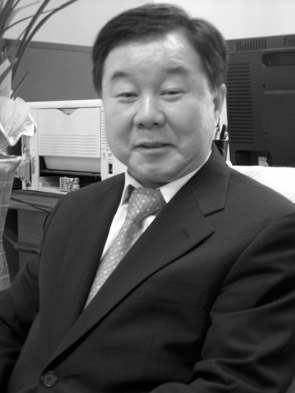
- 건학 100주년이 코앞으로 다가온 중요한 시기에 기획처장으로 부임했는데 소감은.
= 아마도 지금이 개교 100주년을 위한 준비가 절정에 다다른 시기가 아닐까 싶다. 이런 중요한 시점에 기획처장에 부임하게 되어 부담이 크지만, 오는 2006년 성공적인 100주년을 맞이할 수 있도록 최선을 다하겠다. 힘든 만큼 보람차고 의미있는 일을 맡게 된 것 같다.
- 100주년 비전 선포식이 다음 달 23일로 예정돼 있는데, 준비는 잘 되어가고 있는지.
= 학교에서는 지난해 마스터플랜 위원회를 조직해 장·단기 학교 발전 계획을 연구해 왔다. 마스터플랜 위원회는 그동안 교육혁신 분과위원회와 캠퍼스 혁신 분과위원회로 구성돼 연구를 진행했으며 지금까지의 연구결과를 토대로 마스터 플랜을 구체화시키는 작업이 현재 완성단계에 이르렀다. 무엇보다 마스터 플랜이 계획에서 끝나지 않고 실제로 실천되는 것이 중요하기 때문에 이를 뒷받침할 예산확보 방안을 고심하고 있다. 기본적으로 캠퍼스의 개념을 바꿔 볼 생각이다. 이는 열린 캠퍼스로의 전환을 말하는 것인데, 학교 안에서 문제를 해결하기 위해 애쓰기보다는 학교 밖으로 시선을 돌릴 필요가 있다. 우리학교를 중심으로 중구에 대학타운을 형성해 민간투자 활성화를 유도할 방침이다.
- 앞으로 가장 중점적으로 수행할 역할은 무엇인지.
= 그동안 우리학교는 내년이 건학 100주년임에도 불구하고 서로 합심하는 하나된 모습을 보여주지 못했다. 따라서 무엇보다 전 동국 구성원들이 ‘동국대학교’ 라는 명칭 아래 하나로 뭉칠 수 있도록 노력하겠다. 재단, 교수, 직원, 학생은 물론 모든 동국대학교 구성원들과 함께 100주년을 준비할 것이다.
또한 정책 결정과정에 접어들기 전에 미리 다양한 학내 구성원을 논의에 참여시켜 의견을 나누도록 할 것이다. 기획처의 정보를 모든 학내 구성원들과 공유하고 교수회, 직원노조, 총학생회 등 각 구성원을 대표하는 단체와도 접촉을 늘려나갈 예정이다.
김지희 기자
.

